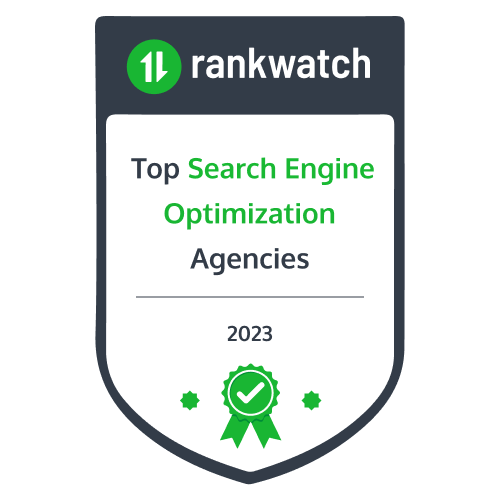For years, Google Ads has been the go-to platform for businesses looking to generate leads, drive sales, and grow their brands. However, as Google continues to evolve its advertising platform, many companies and marketing agencies have begun to experience diminishing returns.
With the rise of AI-driven campaigns like Performance Max (PMax) and Google’s insistence on broad match keywords, advertisers are witnessing a decline in conversions, an increase in wasted ad spend, and a growing frustration with the lack of proper customer support. As Google shifts responsibilities from marketing agencies to its internal PPC team, businesses must be wary of where their ad dollars are going, because, at the end of the day, Google only cares about its bottom line.
AI-Driven Campaigns Are Underperforming
Google introduced Performance Max (PMax) as an AI-powered, all-in-one advertising solution designed to streamline campaign management and optimize ad delivery across multiple Google properties. However, the transition to PMax has led to significant issues for advertisers:
Declining Conversion Rates:
Many businesses report that their conversion rates have plummeted after transitioning to PMax. Reports from advertisers in various industries indicate that leads generated through PMax campaigns are often of lower quality compared to traditional campaigns.
Lack of Transparency:
PMax removes much of the control that advertisers previously had over their campaigns. It does not provide clear insights into where ads are being placed, what keywords are triggering them, or how budgets are being allocated.
Automated Decision-Making Gone Wrong:
Google’s AI optimizations are often questionable. Instead of improving campaign performance, the system frequently burns through budgets without delivering meaningful results.
The Data Doesn’t Lie
Several studies and user testimonials suggest that Performance Max has negatively impacted campaign performance across multiple industries. A survey conducted by Search Engine Journal found that 62% of advertisers believe that Performance Max campaigns have worsened their overall ad performance.
Anecdotal evidence from advertisers on forums like Reddit and Google’s own support community paints a similar picture. Users frequently complain about a dramatic increase in cost-per-lead (CPL) and a decline in lead quality after switching to PMax.
Google’s Push for Broad Match Keywords Is Costing Businesses
Google has been aggressively promoting broad match keywords as the best way to reach a larger audience. While this might make sense in theory, in practice, it leads to significant problems:
Unrelated Search Queries:
Broad match allows Google to display ads for search terms that are completely unrelated to a business’s products or services.
Wasted Ad Spend: Companies end up paying for clicks from users who have no real interest in their offerings.
Lack of Control:
Advertisers no longer have granular control over which search queries their ads appear for, making it harder to optimize campaigns effectively. A report from Search Engine Land found that advertisers who use broad match keywords see an average increase in irrelevant traffic by 35%, leading to unnecessary spending and lower ROI.
Google Ads Support Is Now Virtually Non-Existent
Another major issue with Google Ads today is the lack of proper customer support. Previously, Google Partners had access to dedicated support representatives who could help troubleshoot issues and optimize campaigns.
The Reality Today
Google has evolved significantly over the years, becoming a dominant force with little to no government oversight. Since relocating most of their PPC support operations to India, we’ve encountered ongoing challenges with no clear resolution in sight. Unfortunately, it feels more like a revenue-driven strategy than a commitment to quality support.
No Dedicated Google Reps:
Google has phased out dedicated reps for many advertisers, replacing them with a rotating support system that lacks consistency.
Scripted Support from India:
Many Google Ads reps, based in overseas call centers, provide scripted responses that offer little real insight or value.
No Direct Phone Support:
Google has eliminated the ability for advertisers to call and speak with a knowledgeable representative, instead pushing them toward chatbots and help forums.
For businesses that spend thousands (or even millions) of dollars per month on Google Ads, this lack of support is unacceptable. When an issue arises, advertisers are left scrambling to find solutions on their own.
Responsibility needs to shift from Marketing Agencies to Google’s PPC Team
Traditionally, marketing agencies have been responsible for managing their clients’ PPC campaigns. However, Google has slowly been shifting this responsibility onto its internal teams and clients cast the blame on marketing agencies without realizing we are being honest with them.
Many businesses are now being assigned Google Ads account strategists, who are supposed to help them optimize their campaigns. However, these strategists often lack real expertise and simply follow a scripted playbook aimed at maximizing Google’s revenue, rather than the advertiser’s ROI.
Agencies that have spent years building trust with their clients are now being undercut by Google’s internal PPC team, which prioritizes increasing ad spend over delivering results.
Advertisers Beware: Google Only Cares About Revenue
At its core, Google is an advertising company. The vast majority of its revenue comes from businesses running ads on its platform.
According to Google’s 2023 financial report, $224 billion of the company’s total revenue came from advertising, accounting for over 80% of its earnings. This means that Google’s top priority is maximizing advertiser spending, not ensuring that businesses achieve the best ROI.
How Google Ensures You Spend More
Pushing AI-Driven Campaigns:
AI-driven campaigns like PMax are designed to automate ad spending, often increasing costs without delivering proportional results.
Encouraging Broad Match Keywords:
Google pushes advertisers to use broad match, which leads to more impressions and clicks (and higher costs), even if the traffic is irrelevant.
Hiding Performance Data:
The more control Google takes away from advertisers, the harder it is for them to optimize their campaigns and reduce waste.
The Future of Digital Advertising: What Needs to Change?
The digital advertising industry cannot continue down this path. If Google does not address these issues, more businesses will start looking for alternative platforms.
Steps Advertisers Must Take
- Monitor Ad Spend Closely – Businesses should regularly audit their Google Ads accounts to ensure they are not overspending on irrelevant traffic.
- Use Negative Keywords – Implementing a strong negative keyword strategy can help mitigate the impact of broad match keywords.
- Diversify Advertising Strategies – Consider shifting some ad spend to other platforms like Microsoft Ads, Facebook Ads, LinkedIn Ads, and TikTok Ads.
- Work with Transparent Agencies – Agencies that provide detailed reporting and prioritize data-driven strategies should be preferred over those simply following Google’s recommendations.
What Google Must Do
If Google wants to regain advertiser trust, it needs to:
Restore Dedicated Support Reps:
Advertisers spending large amounts on Google Ads deserve direct access to knowledgeable support teams.
Make AI-Driven Campaigns Optional:
Instead of forcing AI-driven campaigns like PMax, advertisers should have the choice to manage campaigns manually.
Provide More Data Transparency:
Advertisers need full visibility into how their budget is being spent, including detailed search term and placement reports.
Stop Prioritizing Broad Match Keywords:
Google should focus on delivering quality traffic rather than just more traffic.
Is Google Ads Still Worth It?
Despite its many flaws, Google Ads remains a dominant force in digital advertising. However, the platform is becoming increasingly difficult to use effectively without wasting money on ineffective strategies. Many clients compare it to crack cocaine; “Once you get started, it’s difficult to stop”
Businesses and marketing agencies must remain vigilant, carefully analyzing their ad performance and questioning every recommendation Google makes. At the end of the day, Google is not on your side – its priority is maximizing its revenue, not yours.
For those looking to maximize their advertising ROI, the best approach is to stay informed, scrutinize campaign performance, and explore alternative advertising platforms that offer better control, lower costs, and higher-quality traffic. Unfortunetly, when you have a monopoly, the choices are slim.
Fact-Based FAQs About Google AdWords Issues
Question:
Are AI-driven campaigns like Performance Max (PMax) causing businesses to waste ad spend?
Answer:
Yes. Performance Max campaigns automate ad placements across Google’s properties, reducing advertiser control. Many businesses report that these campaigns lead to lower-quality leads and inefficient budget use. Google has introduced updates to provide more insights and controls, but concerns persist. Source: searchenginejournal.com
Question:
Why have conversion rates dropped while Google Ads costs have increased?
Answer:
Google’s emphasis on broad match keywords can lead to ads appearing for irrelevant searches, increasing costs without corresponding conversions. Recent changes may automatically switch keywords to broad match, raising concerns about inflated ad spend and irrelevant traffic. Source: searchengineland.com
Question:
Why does Google encourage advertisers to use broad match keywords despite their inefficiency?
Answer:
Google promotes broad match keywords to expand reach, which can result in more ad impressions and clicks. However, this approach often leads to ads appearing for unrelated queries, causing wasted ad spend. Advertisers are advised to use negative keywords to exclude irrelevant searches. Source: searchengineland.com
Question:
Is Google prioritizing its own profits over advertisers’ success?
Answer:
Yes. Google’s advertising revenue constitutes a significant portion of its total income. In 2023, the company faced antitrust lawsuits alleging monopolistic practices in the digital advertising market, highlighting its focus on maintaining ad revenue. Source: abcnews.go.com
Question:
Why does Google Ads limit transparency in campaign data?
Answer:
Google’s automated campaigns, such as Performance Max, have been criticized for lacking transparency in ad placements and performance metrics. While Google has introduced updates to provide more insights, advertisers still express concerns about the opacity of these campaigns. Source: searchenginejournal.com
Question:
Why has Google Ads customer support gotten worse?
Answer:
Advertisers have reported difficulties in accessing effective customer support from Google Ads. Many note the absence of direct contact options, such as phone or chat support, leading to frustration and unresolved issues. Source: reddit.com
Question:
Why is Google taking control away from marketing agencies and assigning businesses its own PPC strategists?
Answer:
Reports indicate that Google Ads account managers have contacted clients directly, sometimes advising them to drop their current agencies. This practice undermines the relationship between businesses and their chosen marketing agencies. Source: searchenginejournal.com
Question:
Does Google manipulate advertisers into spending more money?
Answer:
Google’s automated recommendations often suggest changes that increase ad spend, such as enabling broad match keywords or raising budgets. While these recommendations aim to enhance campaign performance, they can lead to higher costs without guaranteed returns. Source: searchenginejournal.com
Question:
Should businesses trust Google’s automated campaign recommendations?
Answer:
Caution is advised. Blindly accepting all of Google’s automated recommendations can result in increased spending without proportional benefits. It’s essential for businesses to critically assess each suggestion and consider their specific goals and metrics. Source: searchenginejournal.com
Question:
How can businesses avoid wasting money on Google Ads?
Answer:
To prevent wasted ad spend, businesses should:
- Regularly audit their campaigns to identify and eliminate inefficiencies.
- Use negative keywords to filter out irrelevant traffic.
- Be cautious with broad match keywords and automated recommendations.
- Consider diversifying advertising efforts across multiple platforms to reduce dependency on a single source.
Source: searchenginejournal.com
These FAQs are based on documented issues from industry reports, surveys, and forums. While Google Ads remains a powerful advertising platform, businesses must exercise caution and actively manage their campaigns to ensure their budgets are used effectively.
It’s time for advertising agencies to voice their opinions and stop being blamed for underperforming campaigns. Our clients will stop trusting us and will cast blame on us if we do not open our mouths and let the world know what is happening.





